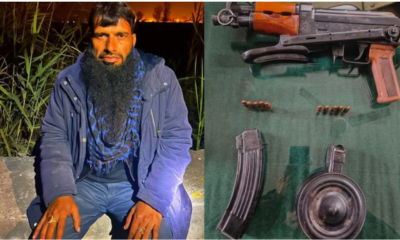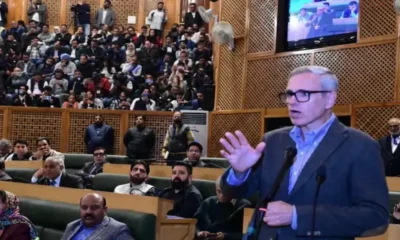Pakistan has expressed that its desire for peace should never be mistaken as its weakness while normalizing relations with India needs resolution of all issues including the “core issue of Kashmir” between the two nuclear countries.
Major General Asif Ghafoor, Director General of Inter-Services Public Relations (ISPR) – the media wing of Pakistan’s Armed Forces, while responding to the questions raised by Gulf News in an exclusive interview, said that India needs to behave “like a responsible country”, stop atrocities on both sides of Line of Control (LoC) and also discontinue “interference inside Pakistan through (the alleged) state-sponsored terrorism”.
The interview was published in Dubai based Gulf News on Sunday. The Pakistani military official responded to a variety of questions about Pakistan’s success in war against terrorism, Pakistan’s relations with UAE and $54 billion China-Pakistan Economic corridor (CPEC) project, linking Gawadar port with China.
He claimed that Pakistan has eliminated sanctuaries of all terrorists groups including the Haqqani network from its soil through “a well-thought-out military campaign”.
Responding to a question on Pakistan’s war on terror, the official said that his country has fought a successful war against terrorism – a war which entered Pakistan through the 2,611-km scantily manned Pak-Afghan border when US –led coalition forces started military operations in Afghanistan against Al Qaida.
However, he said that there are no more organized sanctuaries, for elimination of remaining “disorganized scanty residual presence of militants, Operation Raddul Fasaad, a largely intelligence-based operation is in progress.
He said, “But all this has come with a huge price. Besides cost in blood of over 75,000 Pakistanis there has been loss of more than $123 billion [Dh451.6 billion] to the national exchequer,”
The Pakistan military official said that over 200,000 troops were deployed in FATA (Federally Administered Tribal Areas) along Pak-Afghan border. However, he said this deployment will continue despite successes inside Pakistan as threat continues to reside inside Afghanistan “not due to lack of will but lack of capacity of the Afghan forces.”
Meanwhile, Prime Minister Shahid Khaqan Abbasi held an unscheduled meeting with US Vice President Micheal Pence in Washington on Friday and discussed a proposal for negotiated settlement to the conflict in Afghanistan.
Recently, Afghan President Ashraf Ghani had offered peace talks with Taliban which was supported by US administration.
On Thursday last, UN Security Council had welcomed Afghanistan government’s offer to the Taliban to engage in direct peace talks and called upon the terror group to go ahead with the process without any preconditions and threat of violence.
























